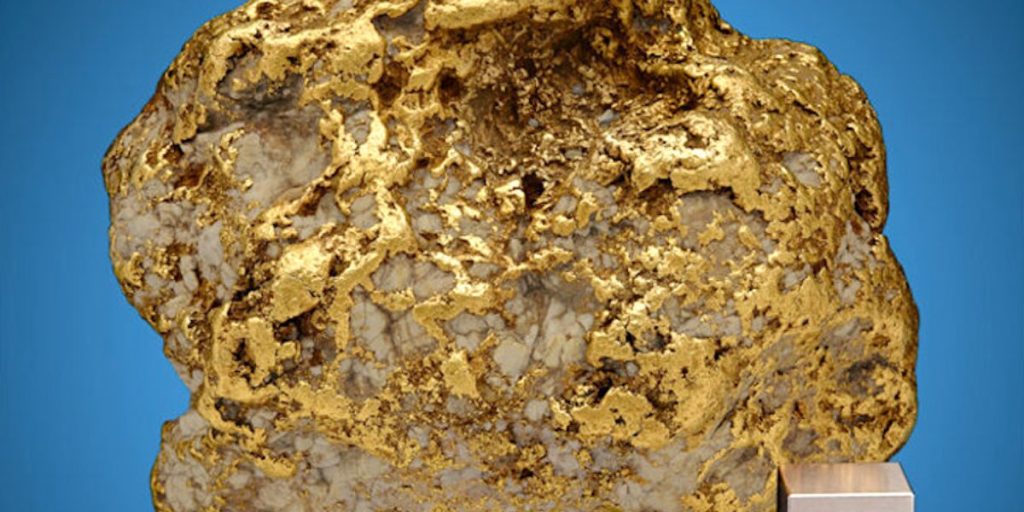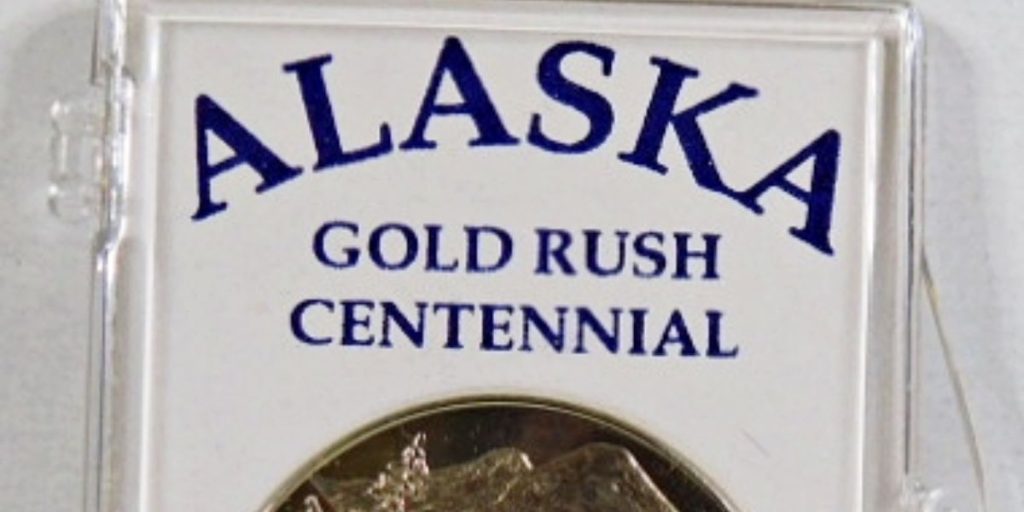Alaska is clearly the largest state in the country. Known as The Last Frontier, this state is notable for both its harsh winters and its numerous claims to fame. Among these claims of fame are gold veins that flow through specific regions and watersheds.
However, Alaska is known for more than just its gold; it is also noted for its excellent fishing and abundant natural gas and oil reserves. More than half of this northern state’s land is preserved as wildlife refuges, national parks, or national forests. But how big is the largest gold nugget ever discovered in Alaska?
Continue reading to learn more about Alaska’s largest gold discovery. We’ll also learn about the area’s gold mining history. Finally, we will learn the size of the largest gold nugget ever discovered anywhere.
What is the Biggest Gold Nugget Ever Discovered in Alaska?

The largest gold nugget ever discovered in Alaska weighed 294.10 troy ounces. That is a massive 20.16 pounds! Barry Clay, a gold miner, unearthed this huge lump of gold, known as the Alaska Centennial Nugget, in 1998.
Clay discovered the enormous nugget while working in a placer mine (surface mining that uses water to extract gold from heavier elements). Clay apparently didn’t even have to dig for the item; he found it with his bulldozer. Clay’s placer mine was on Swift Creek, near the town of Ruby—an area famed for producing large gold nuggets.
According to Clay, when he discovered the watermelon-sized gold nugget, he quickly buried it to keep it safe. Then, when he was ready, he took it for evaluation. At that point, Clay realized that his nugget was the largest gold nugget ever discovered in Alaska.
Furthermore, the Alaska Centennial Nugget, as it is now called, is the second-largest gold nugget ever discovered in the Western Hemisphere. The Cortez Boot, unearthed in Mexico, is the largest gold nugget ever discovered in the Western Hemisphere. It weighs around 24 pounds.
You May Also Like: This Texas City is Sinking Very Fastly in the Entire US
How Much Is the Alaska Centennial Nugget Worth?
You might be asking why it’s called the Alaska Centennial Nugget. Fortunately, the largest gold nugget ever recovered in Alaska was discovered in 1998, exactly 100 years after the renowned Klondike gold rush.
But how much is a 20-pound lump of gold worth? Clay initially sold the Alaska Centennial Nugget to a private buyer at an unknown sum. That buyer held onto the gold for more than 20 years, until 2021, when the massive lump of gold was once again put up for sale.

In December 2021, the Alaska Centennial Nugget sold for $750,000 to an undisclosed bidder. Of course, the value of precious metals is totally determined by culture and civilization. Still, the Alaska Centennial Nugget is an extremely rare and spectacular find.
Learn More:
- Florida’s Best Cuban Sandwich is Awarded to Columbia Restaurant
- 5 Neighborhoods in Fresno, California Are Considered Unsafe to Live
A Brief History of Gold Mining in Alaska
The gold rush that drew millions to Alaska in the hopes of extracting their family fortune from the mud began in 1896 with one discovery. In 1896, a miner named Skookum Jim discovered gold in the Klondike River of Canada’s Yukon Territory.
Over the next few years, many would flock to the area in search of the largest gold nugget ever discovered. Or at least enough gold to make them wealthy.
However, for the majority of prospectors, the cost of the voyage, the time spent looking, and the hardships they encountered greatly surpassed whatever profit they received—if any. Yet, almost a century later, the fascination of discovering gold remains strong for many.
Read More: The Most Terrifying and Creepiest Ghost Town in Alaska
Conclusion
In conclusion, Alaska’s largest gold nugget, the Alaska Centennial Nugget, weighed an impressive 294.10 troy ounces and was discovered by gold miner Barry Clay in 1998. Found during placer mining near Ruby, the nugget was sold in 2021 for $750,000. This remarkable find adds to Alaska’s rich history of gold mining, stemming from the Klondike gold rush in 1896, which drew fortune-seekers to the region.